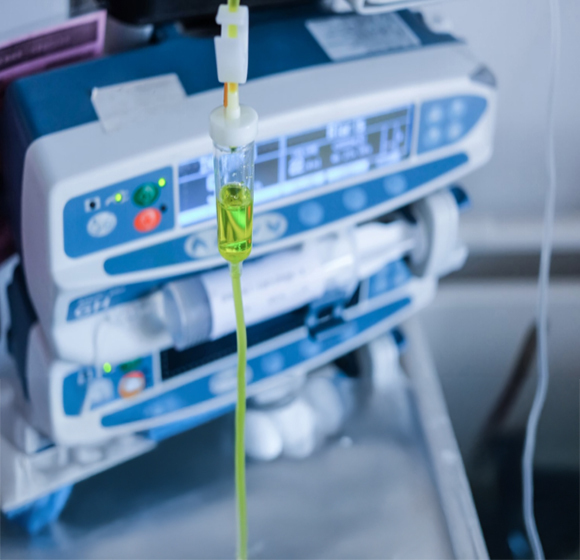CHEMOTHERAPY
CHEMOTHERAPY
Chemotherapy refers to treatment that uses anti-cancer drugs to kill the rapidly proliferating cancer cells. Chemotherapy is considered a systemic treatment because the drugs travel throughout the body, and can kill cancer cells that have spread (metastasized) to parts of the body far away from the primary tumor. It may be given alone or with other treatments, such as surgery, radiation therapy, or biologic therapy.
Chemotherapy dosages are calculated based on body surface area of the patient. It is given at regular intervals according to a schedule which varies by the chemotherapy regimen used and site of cancer.
![]() Goals of chemotherapy:
Goals of chemotherapy:
- Cure
- Control
- Palliation
![]() Types of chemotherapy administration:
Types of chemotherapy administration:
- Intravenous bolus injections
- Intravenous infusions
- Multiday IV infusions- continous or daily
- Oral chemotherapy drugs
- Intraperitoneal chemotherapy
![]() Common side effects of chemotherapy:
Common side effects of chemotherapy:
Each chemotherapy regimen comes with its own range of adverse effects which commonly include
Nausea and vomiting
Hair loss
Diarrhea and constipation
Low appetite and weight loss
Fever and infection due to low immunity
All the side effects can be effectively controlled by the currently available drugs which are preemptively given.

